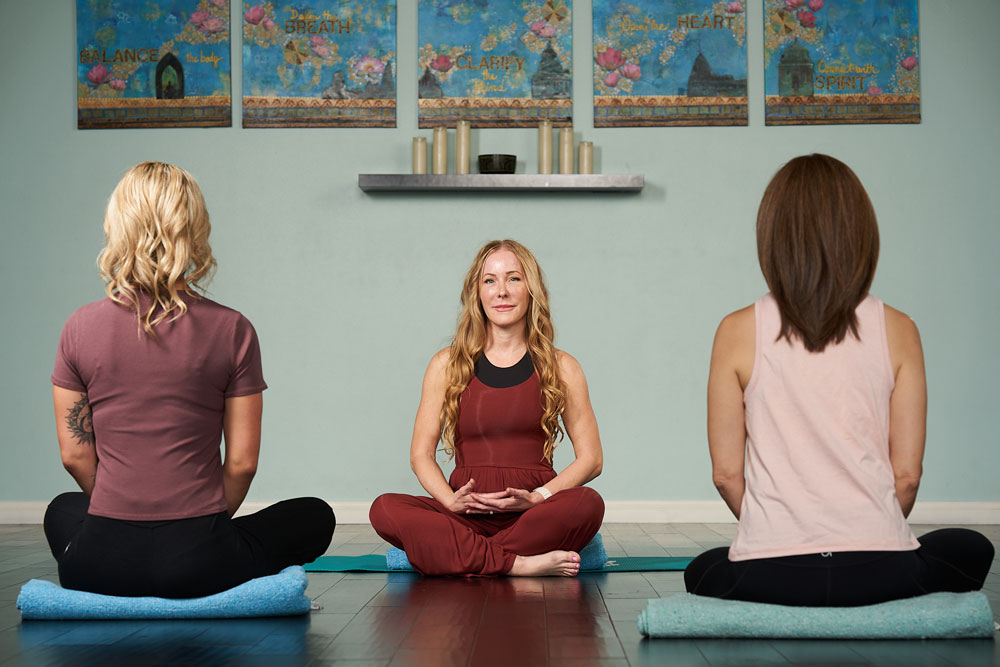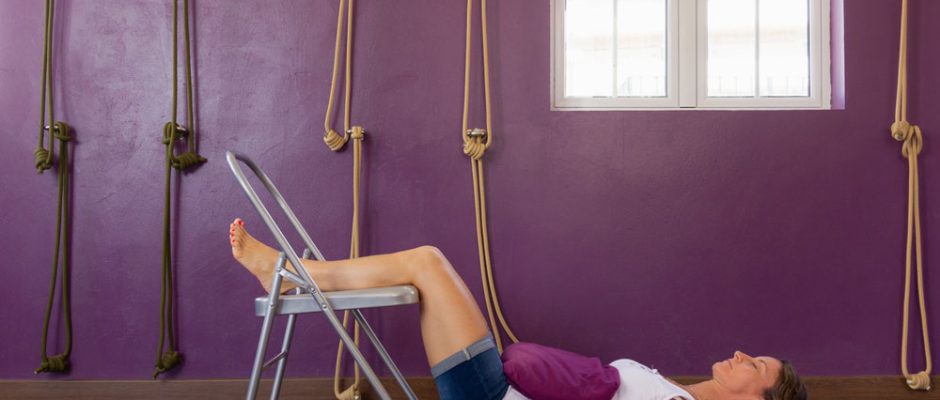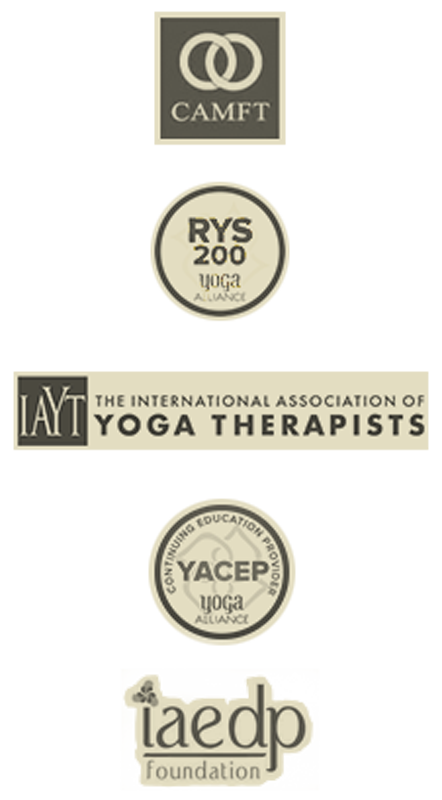
As a Certified Yoga Therapist, C-IAYT, through the International Association of Yoga Therapists, I offer group and individual yoga therapy as a blended and stand alone approach for clients. Yoga therapy is a type of therapy that uses yoga postures, breathing exercises, meditation, and guided imagery to improve mental and physical health. The holistic focus of yoga therapy encourages the integration of mind, body, and spirit. Modern yoga therapy covers a broad range of therapeutic modalities, incorporating elements from both physical therapy and psychotherapy. As a yoga therapist, I offer group practices that run as a series or yoga therapy for clients wanting to do individual sessions one on one. In addition, I am currently completing a three-year Somatic Experiencing® Practitioner (SEP) training program, with graduation anticipated in 2026. I integrate somatic practices beyond yoga to support clients in their healing journeys. My advanced training includes specialized coursework in Concussions and PTSD with Dave Berger, SEP, as well as Advanced Somatic Resolution Skills for Perinatal Trauma with Abi Blakeslee and Kate White, SEPs.
SIGN UP NOW
So what is yoga therapy and how does it work?
A yoga therapist begins by assessing the client’s physical condition, mental health, and emotional state. This can include discussing the client’s medical history, lifestyle, and personal goals. Observations during a yoga practice, such as posture, breath, and movement patterns, can also inform the assessment. Based on the assessment, the yoga therapist designs a personalized practice for the client. This practice may include physical postures (asanas), breathing techniques (pranayama), meditation, and other mindfulness-based practices.
The practice is tailored to address the client’s specific needs, abilities, and goals, which might range from managing stress and improving mental well-being to addressing physical conditions like back pain or arthritis. Using a holistic approach, yoga therapy addresses the person as a whole, considering all aspects of their well-being. Yoga therapy does not simply address or intervene with the physical aspect of the person’s being; it also encompasses emotional balance, mental clarity, and, for some, spiritual growth. This approach can help clients develop greater self-awareness and insight into their conditions and life circumstances.

The relationship between the therapist and the client is an integral part of yoga therapy. The therapist often takes on a role that is part coach, part teacher, and part counselor, offering support and guidance throughout the process. Yoga therapy can be used in conjunction with conventional medical treatments for various conditions. Therapists often collaborate with healthcare providers to create a comprehensive care plan. Clients are taught how to practice yoga safely and effectively, focusing on their particular issues. The education includes understanding body mechanics, the effects of certain movements or postures, and how to use yoga tools (like props) to enhance their practice. Yoga therapy sessions typically evolve over time. As the client progresses, the therapist adapts the practice to reflect their development.
A significant part of yoga therapy is teaching clients practices they can do on their own. Empowering clients to engage in their own care is a key goal, helping them to become more autonomous and proactive in managing their health. The therapist will regularly reassess the client’s progress and adjust the practice as necessary. This may be based on feedback from the client, observations during sessions, or other assessments.
Settings and Formats:
Yoga therapy can be delivered in one-on-one sessions, in small groups, or in workshops and classes. Sessions may take place in various settings, including yoga studios, clinics, hospitals, or at the client’s home.
Yoga therapy can help with a wide range of conditions, including but not limited to:
- Chronic pain conditions such as back pain and arthritis
- Mental health issues like anxiety, depression, and post-traumatic stress disorder (PTSD)
- Neurological and developmental conditions like multiple sclerosis (MS) and autism
- Respiratory conditions like asthma
- Cardiovascular health, including recovery from heart disease.
- Lifestyle-related issues such as stress management and insomnia.
By integrating the philosophy of yoga with practical therapeutic techniques, yoga therapy offers a unique and holistic approach to health and wellness. As an evolving field, it continues to gain recognition as an effective complement to traditional healthcare.
What’s New This Summer: Trauma Healing, Yoga, Retreats + CEUs
This summer into September, you’re invited to reconnect—through gentle, trauma-informed yoga therapy, somatic healing, and professional growth. Whether you’re looking to rest, move, learn, or retreat—we have something for you.
Lifting the Heart for Depression: Reclaim vitality, reconnect with your breath, and lift from within.
This therapeutic yoga series is designed for those experiencing symptoms of depression, low energy, or emotional heaviness. Using gentle backbending, supported inversions, and breath-based movement, this class helps you awaken the spine, expand the heart center, and re-engage with life force.
July 13th at 10AM
Root to Rise for Low Back Pain: Stabilize your center. Release tension. Rebuild trust with your body. This gentle yoga therapy session is for individuals navigating chronic or recurring low back pain. Rooted in somatic awareness and functional movement, this series supports spinal health through nervous system regulation, core stability, and postural realignment.
August 17th at 10AM
Myofascial Yoga Release: This gentle yet deeply therapeutic yoga class integrates traditional yoga postures with myofascial release techniques, inviting profound tension relief and renewed ease in your body. Using specialized props like balls, foam rollers, and yoga blocks, you’ll systematically release tightness and adhesions within your fascia—the connective tissue network that supports every muscle, joint, and organ.
September 14th at 10AM
Trauma-Informed Yoga Retreat | August 1–3 at Ojas Retreat Center, Temecula
Gentle yoga, somatic practices, community healing, swimming, and nature immersion.
Includes lodging, meals & practices. Spots limited.
Let this be the summer of healing and connection.



